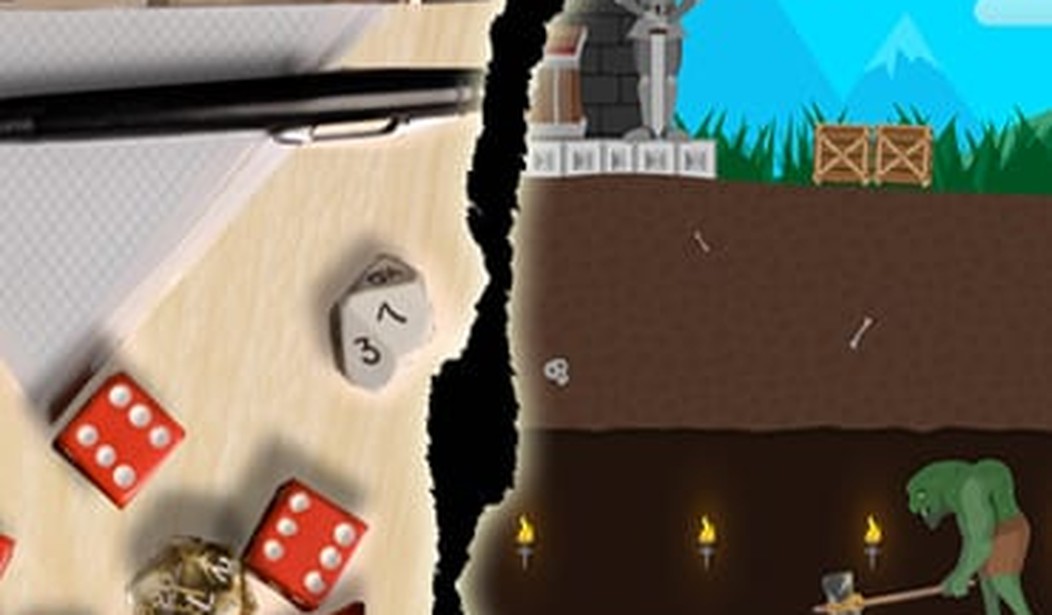This is an interesting question, because it may not have a good answer. When you’re dealing with a pen-and-paper roleplaying game (RPG), it’s fairly obvious whether a particular game is a standard RPG. After all, it’s right there in the name: you are in a game where you are playing a particular role. There may be restrictions on what role you may be playing — your standard Old West game is generally not going to have Imperial Roman soldiers in it, for example — but it’s understood that you have created a particular persona, and you are (theoretically, at least) going to pretend to be that character for the duration of the game.
But it gets complicated when we switch over to computer RPGs. While everybody agrees that they are games, and that you’re playing them, the concept of role is more complex, in no small part because roles are hardwired into the game itself. You simply have fewer options as to what you can play.
At one end of the spectrum of this would be games like The Witcher or Bioshock series: everything about your character was defined for you before you start, down to actual appearance. You’re not playing the role that you want to play, you’re playing because you like the role that the gaming company decided to create for you. That’s not necessarily bad — but it’s not exactly complex, either. At the other end of the spectrum there are games like Dragon Age: Origins, which actually gave you a whole six possible origin stories! And the origin stories actually had an impact on the game! I’m not being facetious; that’s more than a lot of games offer. Somewhere in the middle are games like the Mass Effect series and various D&D-based properties, which use character classes and maybe a Nice/Mean alignment system to give some variation to the characters. But you don’t play computer RPGs for dynamic plotting and unexpected twists. Until we have real Artificial Intelligence, the human brain will simply be better suited for handling those particular tasks.
But since I’ve mentioned plots, let’s talk about them for a bit. A classic criticism of many older RPGs is that they are very Point A to Point B: you will go here, go there, fight these monsters, curse that one person’s sudden, yet inevitable betrayal that you saw coming four levels ago, and generally amble along on the fixed path. It also happens in more modern games: Bioshock Infinite was fairly infamous for almost deliberately giving you no real player choices at all, because the designers figured that we’d love the game for its pre-generated story* and emotional hooks (the designers were largely correct). This is one of the reasons why the ‘sandbox’ format for RPGs was developed: in those games the designers create a large world, stuff it full of adventures, and let the player wander around and take on quests on his or her own schedule. Often this made a mockery of the main plot — as some people have noted, it’s a little odd that the main character of Skyrim would take time out from averting the local equivalent of Ragnarok to go build houses — but it gave back apparent agency for players, which is not such a bad thing.
Note: ‘apparent’ agency. Again, the nature of computer RPGs means that a lot of things are hardwired into the game, including player choices… which cannot be allowed to make enough of a difference to make any of the expected endings of the game impossible. You can fiddle with the limitations a bit: The Witcher: Wild Hunt did a remarkably good job in providing the player with mutually exclusive decision trees; Fallout 4 deliberately made it impossible for players to ‘win’ without betraying somebody. But you can’t let the player go too far afield, because if you do the game can end in an absolute mess**.
None of this is really a criticism, per se. The advantage of computer RPGs over tabletop ones is that you can see and hear the world that you’re playing in, which certainly can compensate for the relative lack of meaningful choices. But all of this does illustrate that the two types of RPGs are related, but not really identical.
*Technically, the game is not a RPG at all: it’s a first-person shooter. But the two main characters are so well-developed that I can’t quite keep it off of the RPG list.
**The most notorious example I can think of would be Mass Effect 3. Not to revisit what seemed sometimes to be an endless holy war over the endings, but one common — and very relevant — criticism of the game was that there was no option to simply refuse the final set of choices. I personally didn’t need that option, and for that matter I was perfectly fine with the original way that the game ended, but it does go to show why it’s important to not bring themes into a game that you’re not prepared to resolve in its ending.









Join the conversation as a VIP Member